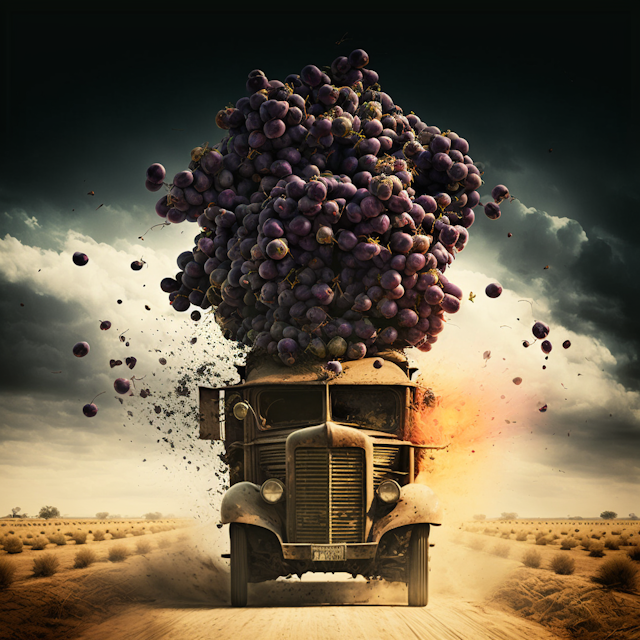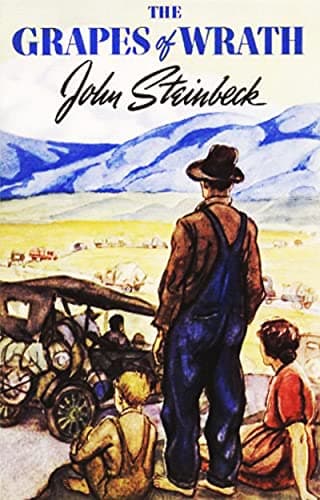The Grapes of Wrath - John Steinbeck

Review date: August 24, 2023 — 3 min read
Book

Grapes of wrath
Introduction
I purchased Grapes of Wrath on a whim. I was on holiday somewhere, saw it sitting in a shop (with a mint green cover) and performed a panic buy. I knew of the novel, as well as of John Steinbeck and that he'd won a Pulitzer for the novel. I knew it would be a relatively existential and eschatological read, with the title seemingly a reference to the Book of Revelation. And that was the sum of my knowledge of the book.
I held on to it for a very long time before actually reading it. I've finally done so, these are my thoughts.
Fun fact: it was the first physical book I had bought in a while.At a glance
I enjoyed Grapes of Wrath. The imagery was exceptional, the pace tantalising and tormenting. Some of the earlier chapters stirred up vivid scenes in my mind. The writing at times is weighty and powerful. There are continuous religious motifs throughout - which draw contemplation from the reader.
However, it falls short at its conclusion. As the book begins to arrive at a dramatic crescendo, the pacing jerks awkwardly and the chaos and mess of it all feels a bit too haphazard. Whilst the inconclusive ending is (probably) intentional (and the message/meaning outcome discernable), I felt it underwhelming and just a bit 'bleh'. Just too much meat left on the bone.
Summary
Grapes of Wrath is set during The Great Depression and follows the Joad family, farmers from Oklahoma, and their endeavours. Farm life in Oklahoma has been devastated by greed and desperation. Banks are evicting farmers and modern agricultural machinery deprecating manual labour. Unforgiving dust is devastating farming yields. It is a disaster.
Desperate, but not defeated, the Joad family pursue Hope in the form of California - a metaphorical Promised land. California offers them the chance to start again, with work and opportunity rumoured to be aplenty. They bid the Sooner State, as well as most of their possessions, farewell. Their large family and stragglers cram into 1 truck and begin their epic trek.
From here on out the novel walks plods along with them to California, with the family being hit with challenge after challenge. Naive optimism gradually turns to fear and resentment. The long journey takes its ‘toll’ in all senses. Steinbeck is unrelenting in his coverage of the poverty and brutal reality faced by many farmers during this time, not doing anything to subdue angry reality.
There are occasional inklings of reprieve, only to see them harshly shattered and buried. The family has their strong bonds and beliefs rattled. We see violence, despair, collapse and the last threads of community start to unravel.
When they finally do arrive in California, more behemoths await, salivating at their desperation and naivety. Beaten and withered, their delusion lingers and they still attempt (in vain) to try to make something out of the new world they find themselves in. There is no salvation to be found in their promised land, only further suffering. This is largely why I believe Steinbeck wrote Grapes of Wrath, to draw attention to the world and what people endured during those times. It is a magnificently gruelling read. Certainly not unbearable, but heart wrenching and intoxicating.